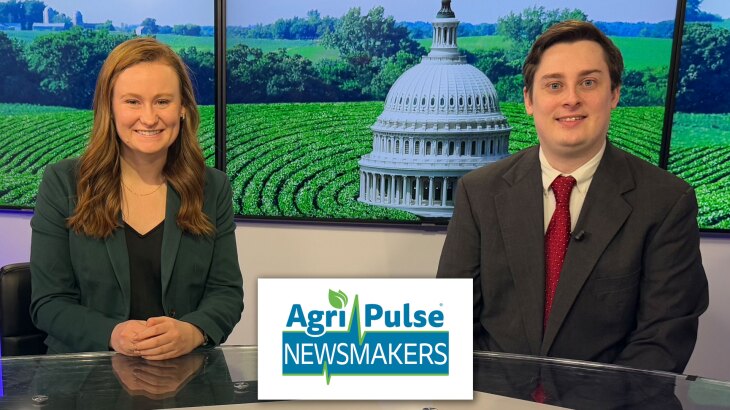The United States Department of Agriculture’s 2024 broiler forecast is out, and producer margins are riding on a reduction in cases of High-Path Avian Influenza (HPAI)
The USDA’s outlook board is projecting next year’s broiler production to be up about 1.5 percent, coming in just shy of 48 billion pounds. Prices are expected to average $1.28/pound, down about 2 percent in 2023.
However, outlook board chair Mark Jekanowski says producer margins could still improve—however, that depends on lower feed prices and an expectation for a decrease in HPAI cases.
HPAI is still a concern for poultry producers all across the U.S., but cases of the virus have slowed in recent weeks.
APHIS hasn’t posted a significant case of more than 100 birds since mid-April. The most recent was a facility in Indiana where 20 birds were culled.
Right now, the USDA is testing a handful of vaccine candidates, but industry experts warn there could be significant pushback because other countries don’t like vaccinated poultry.
Farm Bureau Economist Bernt Nelson says vaccinating the U.S. poultry population could cost the U.S. more than $6 billion dollars in lost trade value. Officials say producers should instead focus on keeping up with their biosecurity measures.
Mixed product pricing and rising milk supplies suggest margin management will remain critical as 2026 unfolds.
January 28, 2026 06:00 AM
·
Marilyn Schlake with the UNL Department of Agricultural Economics joined us for a closer look at the evolving role of livestock sale barns.
January 27, 2026 12:19 PM
·
Meat stocks rose seasonally but remain below last year overall, while tighter butter inventories could support dairy prices, and belly stocks warrant close watch for pork markets.
January 26, 2026 03:00 PM
·
USDA Rural Development Director for Kentucky, Travis Burton, joined us to discuss the Princeton facility (formerly Porter Road Meats), now backed by the USDA, and its role in expanding domestic meat processing capacity.
January 23, 2026 03:39 PM
·
Americans for Prosperity Arkansas Director Ryan Norris talks energy infrastructure, regulatory reform, and the role of critical minerals in supporting rural America.
January 23, 2026 01:54 PM
·
Brian Earnest, an animal protein economist with CoBank, shares insights into current demand trends and the challenges facing broiler production.
January 22, 2026 06:34 PM
·
Jack Hubbard, with the Center for the Environment and Welfare, shares context and perspective on the controversial letter about Prop 12 circulating in Washington and how a review shows it misled the public.
January 22, 2026 06:25 PM
·
President Donald Trump speaks at the World Economic Forum in Davos, addressing SNAP spending, tariff threats against Europe, market reactions, and the upcoming USMCA review.
January 21, 2026 11:50 AM
·
From meatpacking settlements to landmark NEPA rulings, Roger McEowen outlines the top legal developments in 2025 that will shape agriculture in the years ahead.
January 20, 2026 03:39 PM
·




















